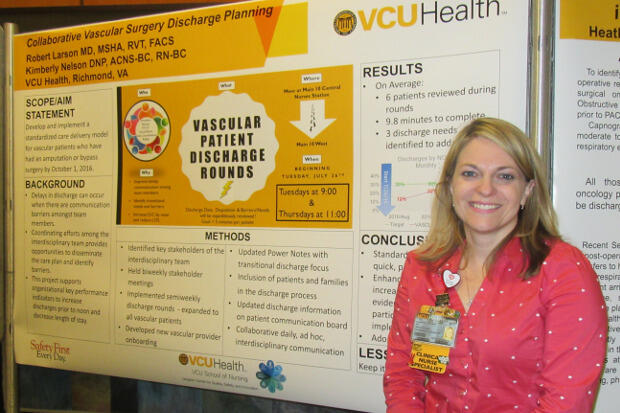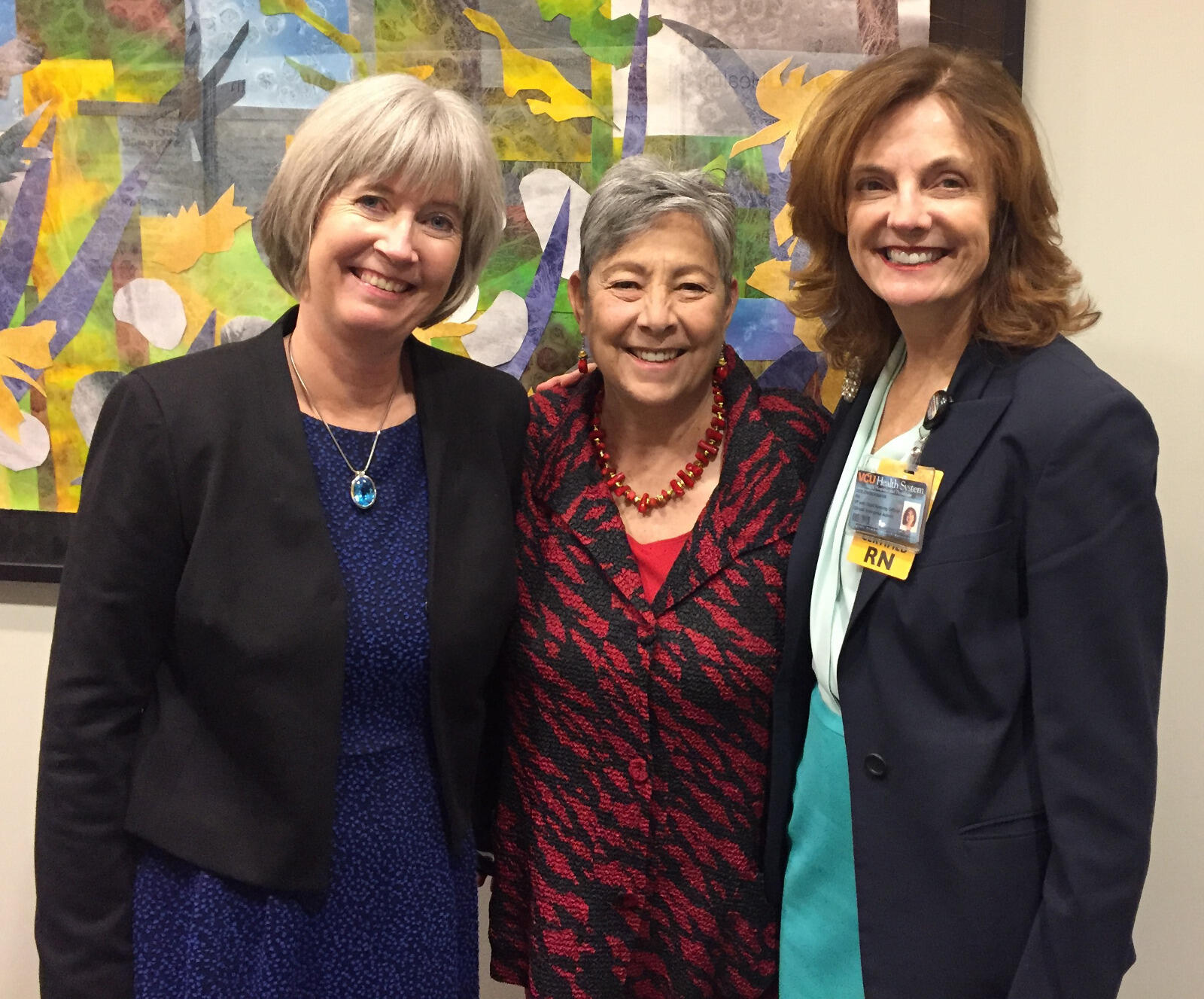
Dec. 8, 2016
Inaugural Langston Quality Scholars present their findings
Share this story
Just a year after coming to fruition, eight teams from the Langston Quality Scholars program presented findings from their individual research aimed at improving current hospital operations, processes and treatment. The nurse and physician dyads were the inaugural cohort of The Langston Center for Quality, Safety and Innovation, formed to examine and improve quality and safety in health care for Virginia Commonwealth University, VCU Health and the community.
Center programming is open to community members and organizations interested in quality and safety in health care. It is housed within the VCU School of Nursing, where program attendees and administrators gathered Dec. 2 to review research and honor those who led the effort to establish and manage the center. Also in attendance was the center’s namesake Nancy Langston, Ph.D., retired dean of the VCU School of Nursing.
All clinicians involved conducted research from departments where they currently work and interact with patients and staff. Consequently, plans are for findings and best practices from the research to be implemented within their respective workplaces. Decreasing newborn readmissions, defining treatment plans and collaboration and coordination within the medical respiratory intensive care unit were among the initiatives tackled by researchers.
The work done by program scholars, over eight months, is unique and patient-centered, officials said.
“We are a model for the world and what we are doing here is changing the way medicine is practiced for the better,” said John Duvall, former CEO of VCU Hospitals and Clinics, who now serves in an advisory role.
Kimberly Nelson, DNP, is a nurse clinician at Pauley Heart Center and part of the first cohort of researchers. She worked with Robert Larson, M.D., director of quality and safety for the Division of Vascular Surgery. Their research involved ways to streamline the discharge process for patients, which can be cumbersome when communication is stymied between patients, hospital staff and family members.
“I know there are a lot of things we can improve on to have a nice, structured way to go through these processes to support quality and safety for our patients. We worked on collaboration in communicating the needs of the patient for discharge to ensure a supported transition to home,” Nelson said. “For example, when it comes to discharge dates, what’s our plan of communication and communicating that information accurately to family members and patients? We decided to create a document that outlines step by step what to do.”

The digital document is especially helpful when staff, particularly interns, change routinely, Nelson said.
While working on the project, Nelson and others involved said all program scholars were in constant contact and met every other week with a performance improvement coach, Deborah Mobley, who was available to help resolve issues and answer questions. Mobley is a senior performance improvement coordinator for VCU Health System. That type of support was imperative, particularly since this was the first cohort.
“We wanted those in the program to have the avenue to be coached and guided on how best to solve these issues,” said Marianne Baernholdt, Ph.D., director of the Langston Center.
Baernholdt is optimistic that all health care practitioners will take the time to assess quality improvement needs within their respective workplaces.
“The hope is that all health care practitioners will have some quality improvement knowledge and use it alongside their clinical knowledge,” she said. “Both must be present and continually updated and used in order to provide high quality care.”
The next Langston Quality Scholars cohort begins in January.
Subscribe for free to the weekly VCU News email newsletter at http://newsletter.news.vcu.edu/ and receive a selection of stories, videos, photos, news clips and event listings in your inbox every Thursday.
Subscribe to VCU News
Subscribe to VCU News at newsletter.vcu.edu and receive a selection of stories, videos, photos, news clips and event listings in your inbox.












